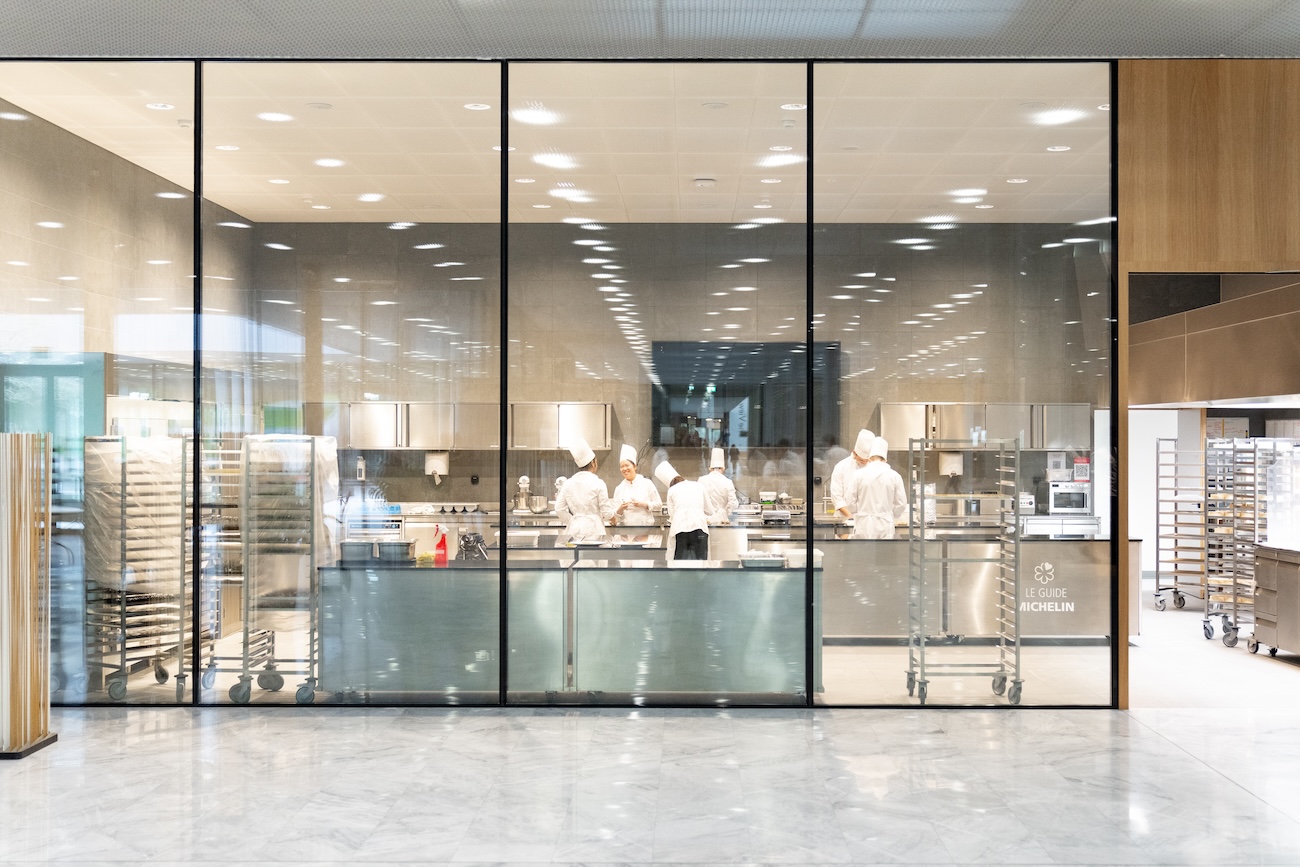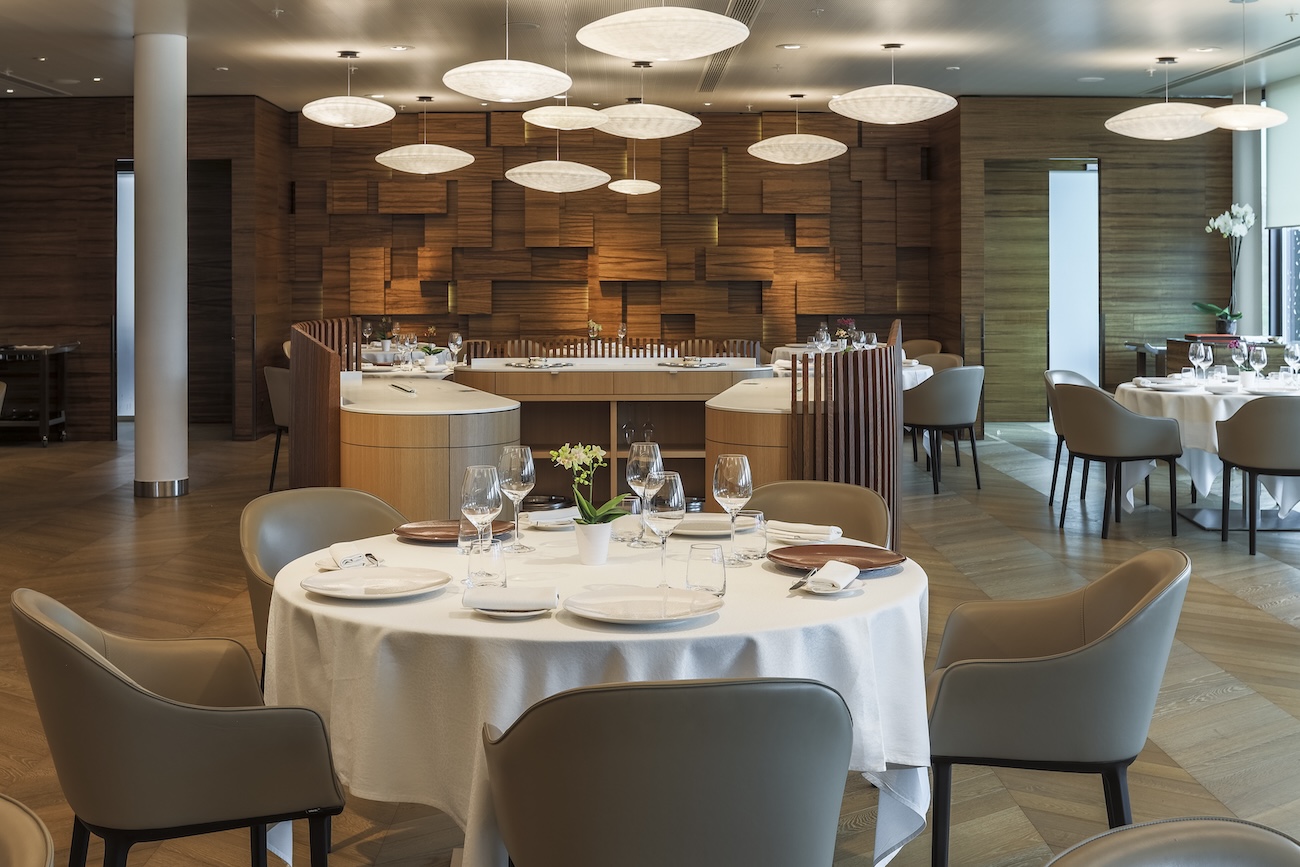Nestled in the hills above Lausanne, Switzerland, EHL Hospitality Business School has long trained the world’s top hoteliers in the finer points of service.
Its alumni—considered EHL family—include Michelin-starred chefs, hospitality entrepreneurs, and general managers of luxury hotels across more than 150 countries.
Spend any time at the school and it’s obvious: what defines it, more than its culinary experiences and number one ranking among elite hospitality schools, is its approach to people.
Learning to create ‘hospitality vibes’
The idea of ‘hospitality vibes’—coined by Dr Meng-Mai Maggie Chen, assistant professor of marketing at EHL, in her recent book of the same name—sums up the school’s philosophy.
Students learn the ins and outs of hospitality, but what sets graduates apart in a highly people-facing industry is the ability to build connections and generate positive energy.
As Dr Chen writes: “The framework is applicable across all industries and contexts that rely on human exchange. Creating hospitality vibes is not just aimed at going from service provider to customer, but also from manager to employee and, even better, co-created among employees and peers.”
Particularly as digitalization and automation transform the workplace, Dr Chen argues that a key factor for organizational success, across industries, is the quality of human connections.
Markus Venzin, CEO of EHL, goes further, seeing this as a response to a much broader issue.
“The biggest challenge of today is the new pandemic of loneliness,” he says. “In the US, three out of five people feel lonely at least once a week. Hospitality is an antidote for that. Hotels and restaurants are places to socialize and to connect, that’s the difference between hotels and Airbnbs. That’s something we need to work on more than ever.”
That focus on human skills explains why graduates at EHL and other hospitality business schools find opportunities both in and beyond traditional hospitality.
Sarah Eissa, sales and recruitment manager of the graduate school, says: “60% of our students don’t pursue a career in hospitality, so it really means that companies actually do value the transferable skills of our students.”

© EHL Hospitality Business School
How to teach human skills
EHL’s flagship program is its bachelor’s degree, which sees students rotating through all the roles you’d find in a hotel: kitchen, restaurant service, even housekeeping. Le Berceau des Sens, EHL’s on-campus Michelin-starred restaurant, doubles as a teaching kitchen. If you visit for lunch, you’re likely to be served by a student who’s midway through their practical training.
In the graduate school, whether in the MBA in Hospitality, the Master in Hospitality Management (MIHM), or otherwise, learning is built around teamwork, live cases with real companies, and networking with industry experts from around the world.
MIHM students are based full-time in Lausanne, while the Master in Global Hospitality Business sees students split their time between Switzerland, Hong Kong, and the US.
“For us, human centricity is a way of seeing business. It’s our philosophy, it’s in everything that we do,” says Samrah AlShawi, director of the graduate school.
“We have personal and professional leadership development offerings, courses on organizational behavior, the customer experience, ESG. Throughout our courses, there’s a lot of opportunities to work with other people.”
Rorie, an MIHM student specializing in CSR (corporate social responsibility) and Sustainable Transformation, says the diverse mix at EHL has pushed her to adapt her leadership style.
“Back home in the US I had a certain way of leading, but here, working in such diverse teams, I’ve had to adjust depending on the situation. You learn quickly how different people respond to pressure,” she says.
Pravin, an MBA student, says group work at this level stands out because everyone brings significant professional experience to the table.
“You’re often working with people who’ve run kitchens, worked in logistics, as regional directors, or come from completely different sectors. We’re all used to working in a certain way. So together, you have to reconsider how team dynamics work,” says Pravin.
“It becomes less about control and more about creating space for everyone to contribute.”

© EHL Hospitality Business School
Putting human skills to the test
The Open Innovation Summit at EHL is a vivid example of students putting their skills to the test. Held inside the school’s Innovation Hub, the summit brings together students, alumni, faculty, and hospitality professionals to work through challenges facing the industry.
During the summit’s Live Challenge Sessions, small teams are given complex briefs—ranging from identifying how luxury brands can become more sustainable, to planning how hotels might build stronger connections between guests and local communities.
Teams of five or six are each made up of students from different programs, as well as alumni and industry guests. After brainstorming, a spokesperson from the group presents their ideas to a renowned EHL graduate.
Maria Eduarda, an MIHM student specializing in Food and Beverage Management, joined a Live Challenge session focused on regenerative hospitality, which involves finding ways for hotels and restaurants to leave a positive impact on their local ecosystems.
In Maria’s group, which included two professors and an entrepreneur, it was a bachelor’s student who stepped forward to present their idea—an example of how students are treated like professionals in training.
“It was a really nice experience because we had a well-known figure from the industry there,” says Maria. “It was a chance to network and learn, and to get to know his company more deeply.”
Other sessions looked at the future of food in Swiss canteens, or challenged teams to develop new ideas for innovating the guest experience.
Not every session at the Open Innovation Summit is focused on success stories, however. During one session focused on learning from setbacks and adapting for success, entrepreneurs spoke candidly about their entrepreneurial failures and what they learned, to students and aspiring founders in the audience.
It’s a sense of community that keeps those skills alive long after graduation.
As AI continues to transform the workplace, hospitality education serves as a reminder that human connection is a skill worth designing for. As Markus Venzin emphasizes: “Technology should support interaction, not replace it.”



